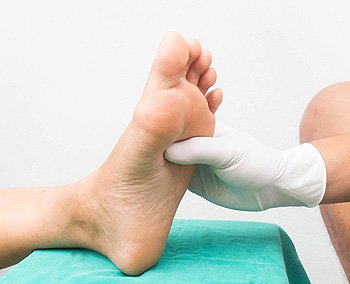Peripheral neuropathy is a condition resulting from damage to the peripheral nerves, which are the nerves outside the brain and spinal cord. These nerves are responsible for transmitting sensory, motor, and autonomic signals between the central nervous system and the rest of the body.

Causes of Peripheral Neuropathy:
- Diabetes:
- Diabetic Neuropathy: High blood sugar levels can damage peripheral nerves over time.
- Trauma or Injury:
- Physical injury or repetitive stress can damage nerves.
- Infections:
- Examples: Shingles (herpes zoster), Lyme disease, and HIV can cause neuropathy.
- Nutritional Deficiencies:
- Examples: Deficiencies in vitamins B12, B6, and E can lead to neuropathy.
- Autoimmune Diseases:
- Examples: Rheumatoid arthritis, lupus, and Guillain-Barré syndrome can affect peripheral nerves.
- Toxins:
- Examples: Exposure to heavy metals (like lead or mercury) or certain drugs (like chemotherapy agents) can cause nerve damage.
- Alcoholism:
- Chronic alcohol consumption can lead to neuropathy due to both direct toxic effects and nutritional deficiencies.
- Genetic Disorders:
- Examples: Hereditary conditions like Charcot-Marie-Tooth disease.
- Kidney Disorders:
- Chronic kidney disease can cause neuropathy due to the accumulation of toxins.
- Cancer:
- Examples: Cancer and its treatment (like chemotherapy) can cause peripheral neuropathy.
- Metabolic Disorders:
- Examples: Conditions like hypothyroidism can contribute to neuropathy.
Symptoms:
- Sensory Symptoms:
- Numbness or reduced sensation.
- Tingling or “pins and needles” sensation.
- Burning or shooting pain.
- Motor Symptoms:
- Muscle weakness.
- Difficulty with coordination and balance.
- Loss of reflexes.
- Autonomic Symptoms:
- Changes in blood pressure or heart rate.
- Digestive issues.
- Sweating abnormalities.
Diagnosis:
- Medical History and Physical Examination:
- Discussing symptoms, their onset, and any related health conditions or exposures.
- Neurological Examination:
- Assessing muscle strength, reflexes, and sensory function.
- Nerve Conduction Studies (NCS):
- Measuring the speed and strength of electrical signals traveling through nerves.
- Electromyography (EMG):
- Evaluating the electrical activity in muscles to identify nerve damage.
- Blood Tests:
- Checking for underlying conditions like diabetes, vitamin deficiencies, or autoimmune disorders.
- Imaging:
- MRI or CT Scans: To identify any structural issues affecting the nerves.
- Nerve Biopsy:
- In some cases, a small sample of nerve tissue may be taken for analysis.
Homeopathy for Peripheral Neuropathy:
Some homeopathic remedies that might be considered include:
- Hypericum Perforatum: For nerve pain and shooting sensations.
- Phosphorus: For burning pain and weakness.
- Arsenicum Album: For pain with restlessness and anxiety.
- Calcarea Phosphorica: For weakness and discomfort in the limbs.

